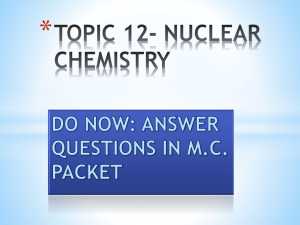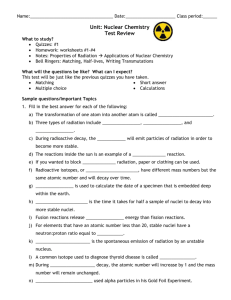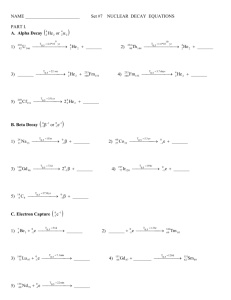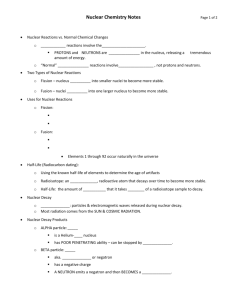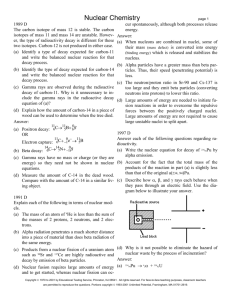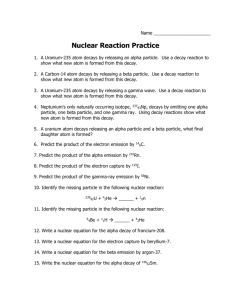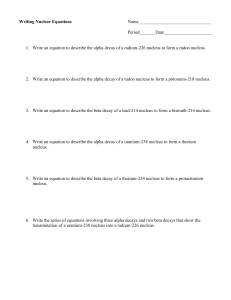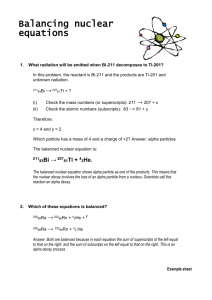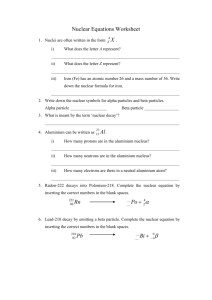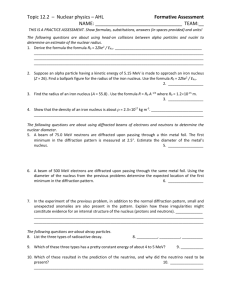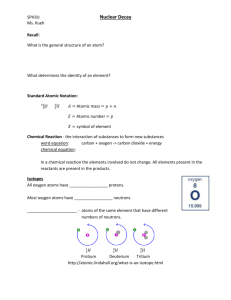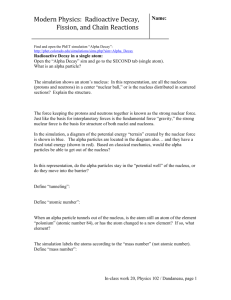Nuclear Notes filled in
advertisement
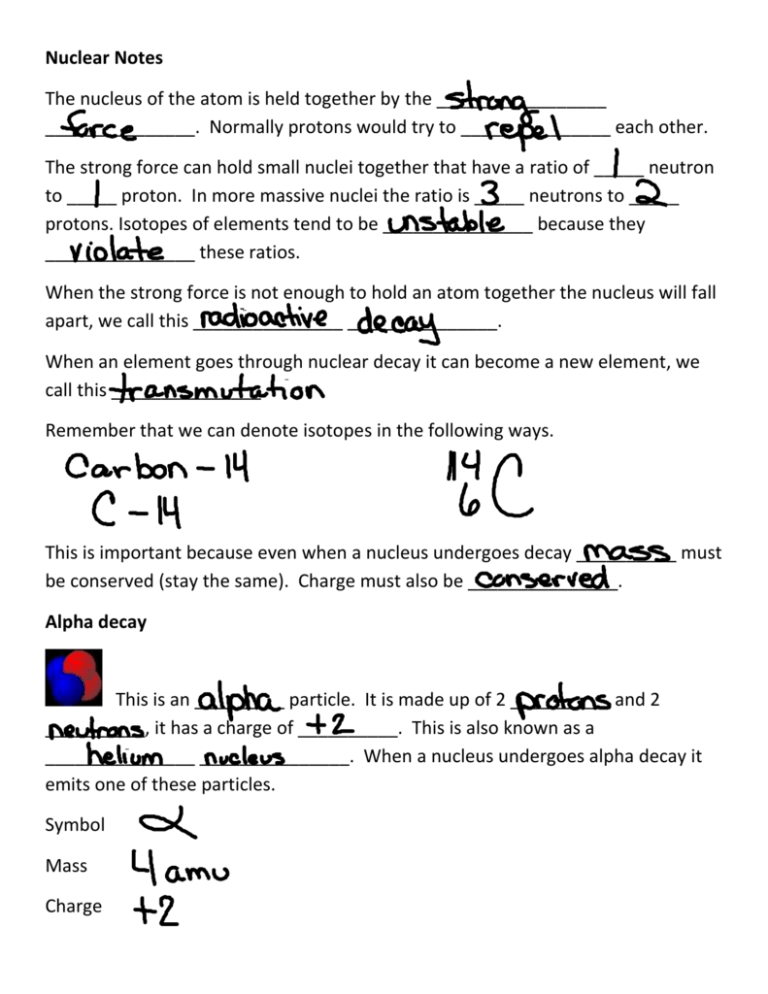
Nuclear Notes The nucleus of the atom is held together by the _________________ _______________. Normally protons would try to _______________ each other. The strong force can hold small nuclei together that have a ratio of _____ neutron to _____ proton. In more massive nuclei the ratio is _____ neutrons to _____ protons. Isotopes of elements tend to be _______________ because they _______________ these ratios. When the strong force is not enough to hold an atom together the nucleus will fall apart, we call this _______________ _______________. When an element goes through nuclear decay it can become a new element, we call this _______________. Remember that we can denote isotopes in the following ways. This is important because even when a nucleus undergoes decay __________ must be conserved (stay the same). Charge must also be _______________. Alpha decay This is an _________ particle. It is made up of 2 __________ and 2 __________, it has a charge of __________. This is also known as a _______________ _______________. When a nucleus undergoes alpha decay it emits one of these particles. Symbol Mass Charge Nuclear reactions can be written as equations. The one below would be for the reaction pictured above. Alpha particles are a very _______________ form of _______________. An alpha particle can be stopped by a sheet of _________________. Alpha decay can cause limited damage to living tissues. Beta decay Beta decay is caused by the _______________ of an ________________ from the nucleus of the atom. A neutron breaks down into a _______________ and an _______________. The proton stays in the nucleus and the electron is ejected at high speed. Symbol Mass Charge The nuclear equation for beta decay for the above reaction can be written as follows. Beta particles are ejected at a higher velocity than alpha particles. Beta particles can pass through paper but will be stopped by ______________ __________. Because of its greater penetrating power beta decay can be more damaging to living tissue than alpha decay. Gamma decay _______________ decay is the most _______________ type of radiation. It is the emission of _______________ waves from the nucleus. _______________ rays are the _______________ of the electromagnetic waves. These are the most ________________ and the most ________________ of the electromagnetic waves. Gamma rays are so penetrating that it takes blocks of _______________ or sheets of _______________ to stop them. Symbol Charge Comparison of the three types of decay Half life http://www.pbslearningmedia.org/asset/nvhe_vid_decay/ The half- life of an isotope is the ______________ it takes for _______________ of the amount of the isotope to ______________. Carbon – 14 half-life amount left Nitrogen - 14 Radiometric dating Scientists know the half-life of many radioactive isotopes. They can use this information to date ancient materials. _______________ can be used to measure the age of once living materials. _______________ can be used to rocks. The ratio of the starting isotope to ending isotope calculated, from this the age of the artifact can be determined. Nuclear fission _______________ _______________ is the _______________ of a large atom into smaller atoms. A _____________ is fired at a large atom like U-236. This causes the large atom to undergo _______________, splitting the atom into two smaller nuclei and some extra neutrons. During nuclear fission some of the __________ of the starting materials is converted to ___________. There is more mass in the reactants than there is in the products, this missing __________ is converted into tremendous amounts of ___________. Einstein’s equation __________________ shows the relationship between _________ and ____________. Chain reaction Nuclear fission can be used to start a ________________ _________________. The _______________ that are released from the first _______________ reaction then move toward other large nuclei and collide with them causing other ________________ reactions to take place. This will continue until there are no more suitably _______________ enough nuclei to react with. For a _______________ ________________ to occur there must be a sufficient number of large nuclei for the _______________ to react with. There must be enough material/mass. This is known as _________________ _________________. If there is not enough ___________ then a chain reaction will not occur. Nuclear Fusion _______________ __________________ is a nuclear reaction the takes _______________ atoms and __________ them together to create one _______________ atom. Fusion only takes place at ________________ temperatures. The heat causes the atoms to move at high velocity. The high velocity overcomes the nuclei’s natural repulsion to each other allowing them to come close enough to _______________ together. The only place that nuclear fusion takes place naturally is in _______________.
